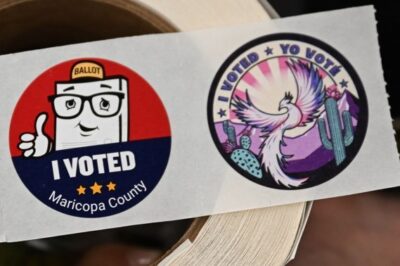I grew up in a family that was always extremely engaged in politics. My mother ran for political office three times and from an early age instilled in me the importance of exercising our most cherished fundamental right: the right to vote. At age 70, my mother stopped driving and did not have government-issued photo identification until she died at age 84, although she still was able to vote in every election. Over the last few months, however, state legislatures have passed voter identification laws that would prevent senior citizens like my mother from expressing her political voice at the polls.
Chances are you know someone who will be impacted by these voter suppression laws. These kinds of laws are discriminatory in nature by placing a disproportionate burden on low-income individuals, racial and ethnic minorities, students, senior citizens, voters with disabilities and others who do not have government-issued ID or the money to acquire one. A Brennan Center survey tells the sobering story of more than 21 million Americans who do not have government-issued photo identification. As many as 25 percent of African American citizens of voting age and 18 percent of senior citizens do not have government-issued photo ID.
These laws are so widespread that 30 states now require voters to present identification to vote in federal, state and local elections. And of these, fifteen states require that voters present a photo ID – which in many states must be government-issued – to cast a ballot. For example, voter ID laws have recently been passed in South Carolina, Alabama and Texas, all states which have had a troubling history of voter suppression and, as a result, any changes in their election laws are subject to approval – or “pre-clearance” – by the Justice Department under Section 5 of the Voting Rights Act.
Voter ID, of course, is one of many ways in which some are trying to curtail the right to vote. In Florida, another “pre-clearance” state, a disastrous series of voter suppression measures are about to go into effect. For over a decade, Florida has been the center of controversy over efforts to stop people from voting and to stop their votes from being counted. Florida’s new law imposes heavy fines if voter registrations are not submitted within a 48 hour period; mandates onerous restrictions virtually eliminating third-party voter registration efforts; and revises current election law to shorten early voting, among other efforts that make it much harder to register and actually vote.
If Attorney General Eric Holder determines that any of these laws violate the Voting Rights Act, he can deny the approval needed for them to go into effect. The ACLU has already gone to court, urging a federal judge to halt statewide implementation of Florida’s new regressive law unless — and until — the Justice Department signs off.
The ACLU has long been at the forefront of fighting such voter suppression efforts through its lobbying efforts, public education and groundbreaking lawsuits. Together we must prevent these laws from being enacted to protect the rights of millions of voters across the country.
Take action to help protect the right to vote. Urge Attorney General Holder to enforce the Voting Rights Act and reject this effort to undermine democracy.
Learn more about voting rights: Sign up for breaking news alerts, follow us on Twitter, and like us on Facebook.



